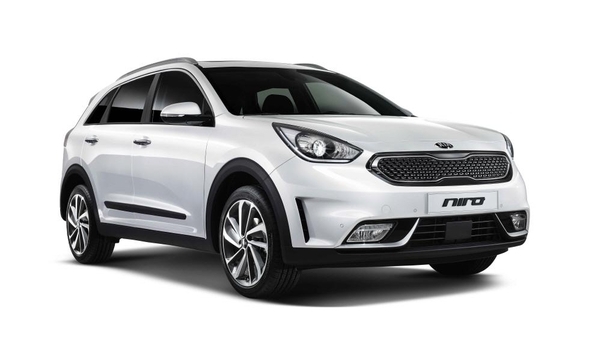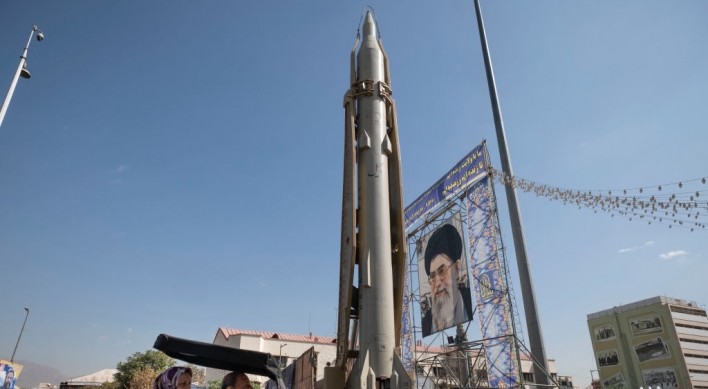Hyundai sees boost in eco-friendly cars, hurdles lie in China
By Kim Bo-gyungPublished : Aug. 15, 2017 - 15:57

Amid declining sales of Hyundai Motor and Kia Motors in Korea and abroad, demand for eco-friendly cars made by the country’s top two carmakers is increasing, data from the company showed.
Hyundai Motor and Kia Motors sold a combined 141,681 eco-friendly cars between January and July this year, which is 10 percent more than the 128,975 units sold for the whole of 2016.
Eco-friendly cars offered by the two companies consist of 14 models -- six hybrids, three electric vehicles, four plug-in hybrids and one fuel cell EV.
By engine type, sales of hybrid models ranked No. 1, totaling 119,780 units, followed by EVs and plug-in hybrids.
Sales of plug-in hybrids jumped fivefold to 8,485 units in the cited period, showing the biggest rise in sales due to the popularity of the Niro plug-in hybrid SUV, company data showed.
“The Ionic hybrid and Niro plug-in hybrid models are garnering huge popularity from motorists worldwide. We plan to diversify the eco-friendly lineup and also expand sales,” Hyundai Motor said.
Among the eco-friendly cars sold from January to July this year, overseas sales totaled 105,383 units, up 35.3 percent on-year.
China’s new energy vehicles policy, however, is widely expected to pose hurdles to Hyundai and Kia Motors, alongside other auto-related Korean companies operating there.
Under a dual-credit scheme, automakers will be required to meet a minimum fuel efficiency rate. They will also have to increase the proportion of zero- and low-emission vehicles to 8 percent of total cars made next year. The proportion will gradually rise to 10 percent in 2019 and 12 percent in 2020.
Carmakers that fail to meet the requirement can either buy credits from other companies or pay a fine.
“Most carmakers will not be able to meet the given target, so the new policy has to be delayed by a year,” the Korea Automobile Manufacturers Association said.
According to the KAMA, it sent a letter requesting that the Chinese government delay the introduction of the dual-credit scheme and soften measures imposed on Korean battery makers last June.
The request was jointly made with the American Automotive Policy Council, the European Automobile Manufacturers’ Association and the Japan Automobile Manufacturers Association.
The KAMA’s request comes as Hyundai Motor looks set to miss its sales quota for eco-friendly cars for next year by about 4,800 units based on estimates for this year’s sales.
The electric version of the Yuedong compact sedan, sold as the Elantra globally and released earlier this month, is currently the only EV model offered in the Chinese market.
In an attempt to secure a share of China’s growing EV market, Hyundai Motor will raise the number of eco-friendly models there to six by 2020.
Hyundai Motor will roll out a plug-in hybrid version of the top-selling Sonata midsize sedan early next year, the company said.
By Kim Bo-gyung (lisakim425@heraldcorp.com)


![[AtoZ into Korean mind] Humor in Korea: Navigating the line between what's funny and not](http://res.heraldm.com/phpwas/restmb_idxmake.php?idx=644&simg=/content/image/2024/04/22/20240422050642_0.jpg&u=)
![[Exclusive] Korean military set to ban iPhones over 'security' concerns](http://res.heraldm.com/phpwas/restmb_idxmake.php?idx=644&simg=/content/image/2024/04/23/20240423050599_0.jpg&u=20240423183955)



![[Graphic News] 77% of young Koreans still financially dependent](http://res.heraldm.com/phpwas/restmb_idxmake.php?idx=644&simg=/content/image/2024/04/22/20240422050762_0.gif&u=)
![[Herald Interview] Why Toss invited hackers to penetrate its system](http://res.heraldm.com/phpwas/restmb_idxmake.php?idx=644&simg=/content/image/2024/04/22/20240422050569_0.jpg&u=20240422150649)





![[Exclusive] Korean military to ban iPhones over security issues](http://res.heraldm.com/phpwas/restmb_idxmake.php?idx=652&simg=/content/image/2024/04/23/20240423050599_0.jpg&u=20240423183955)



![[Today’s K-pop] Ateez confirms US tour details](http://res.heraldm.com/phpwas/restmb_idxmake.php?idx=642&simg=/content/image/2024/04/23/20240423050700_0.jpg&u=)